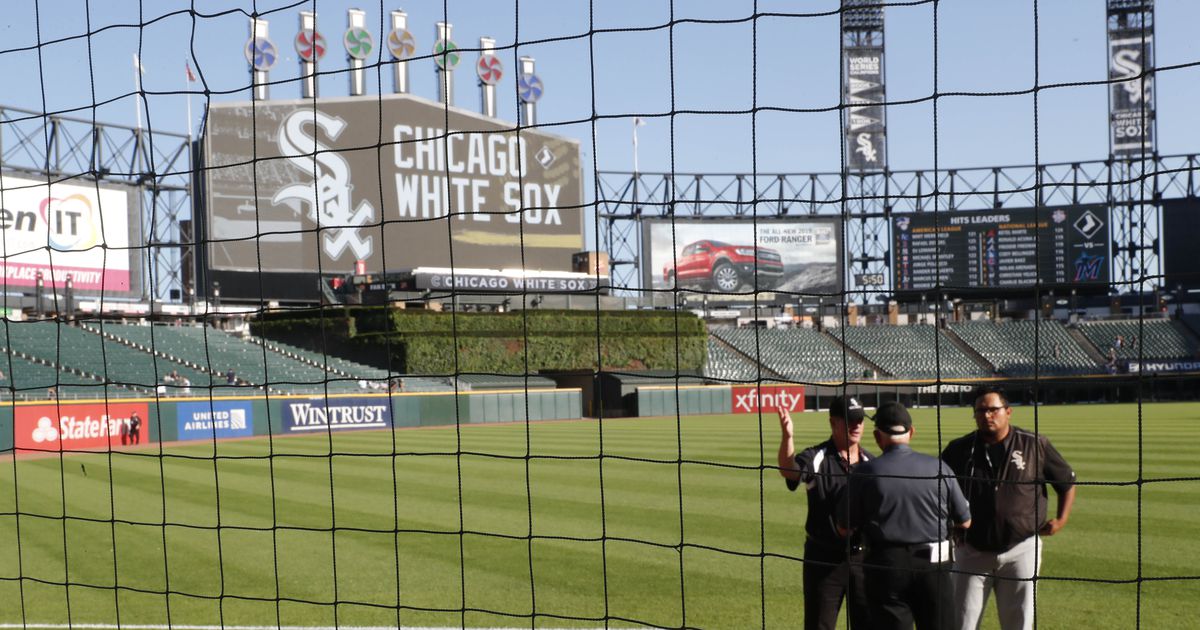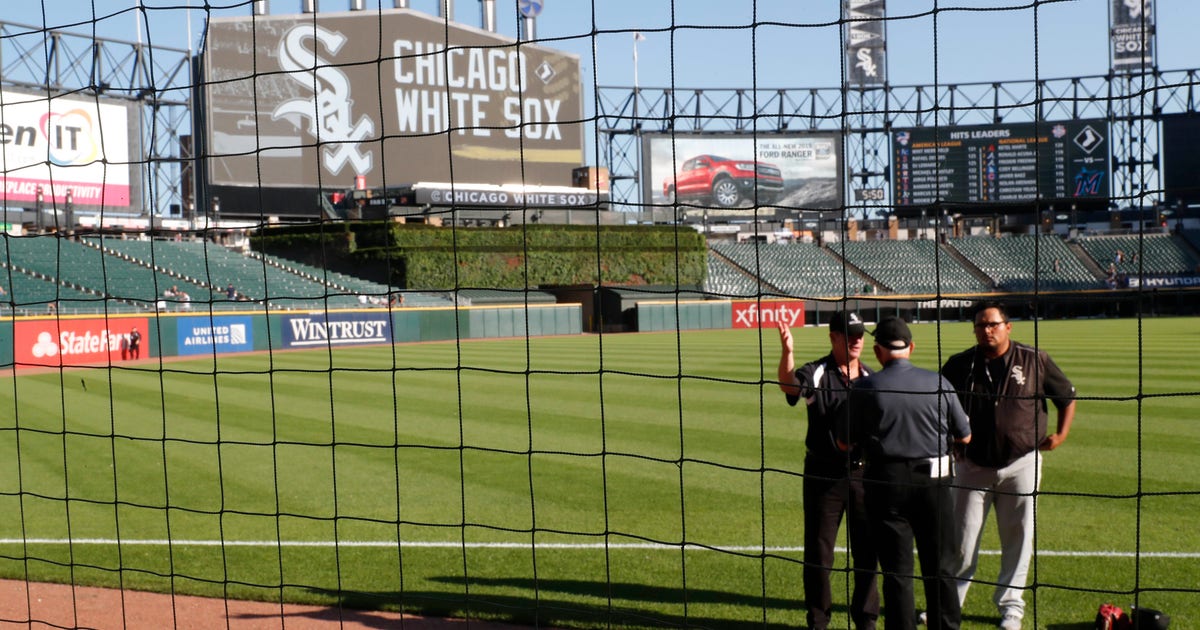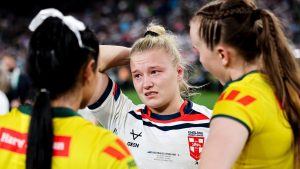White Sox host 1st MLB game with foul pole-to-pole netting


CHICAGO (AP) — The Chicago White Sox have become the first team in the major leagues to extend protective netting from foul pole to foul pole, starting Monday night against the Miami Marlins.
The extra netting at Guaranteed Rate Field was in place for Chicago’s first home game since the All-Star break. The White Sox announced the safety measure last month, a week after a foul ball at the park sent a woman to the hospital with her head bleeding.
On Sunday in Cleveland, another fan was hurt by a foul. Indians star Francisco Lindor said he was told his line drive put a 3-year-old boy in the hospital.
“It’s a great idea,” White Sox pitcher Evan Marshall said. “It’s a shame it wasn’t done sooner and just almost a standard across baseball, I think. Finally the players are speaking out because everybody is tired of seeing people get hit.
“It just sucks the air right out of the game and we see it happen. It’s hard to move on to the next pitch or do whatever because somebody’s going to the emergency room,” he said.
Several fans, including a 2-year-old girl in Houston, have been injured by hard-hit fouls this season. Many players and fans have implored Major League Baseball to require pole-to-pole netting covering foul territory at every ballpark.
The new netting in Chicago will be 30 feet high above the dugouts and reach a maximum height of 45 feet down the lines.
As for ground rules, the nets will be treated like walls — as in, a ball that bounces or is thrown into the netting remains in play.
White Sox rookie star Eloy Jimenez hit the foul last month that injured the woman.
“It’s really good because now the fans are going to be more safe,” he said. “Especially because line drive foul balls, most of the time they’re super hard. I think it’s going to be safe for the fans.”
The Washington Nationals were among other teams to announce this season they would extend their netting. It was in place at Nationals Park on Monday when the game against Colorado was rained out.
Commissioner Rob Manfred recently said extending protective netting down foul lines is a ballpark-to-ballpark decision because of differing configurations. MLB mandated before the 2018 season that netting extend to the far end of each dugout.
As the crowd entered the park for the Marlins-White Sox game, there were varying views of the new netting.
A fan named Michael, who declined to provide his last name, brought his 8-year-old son. They sat two rows off the field, two sections down from the White Sox dugout on the third base side.
“Tough call, safety versus pleasure,” he said. “I would take safety. Now for sure you won’t get hit, before you probably had to pay more attention. But the balls were coming off pretty hard, so anyone who’s just not paying would get hurt.
“There’s definitely an impediment with the net,” he said. “It definitely changes the experience. It’s not the same as before, getting balls, seeing through the net. It’s not the same, but I’m sure people will get used to it.”
Maybe not, said Missi Cundari, who brought 10-year-old son Dean. They had the same seats for a game earlier this season, three sections past third base dugout, a couple rows back.
She wasn’t happy.
“The view and also the ball boys would throw us balls and the players would come up and chat. This is terrible,” she said. “We never felt unsafe. The balls that were hit over here were groundballs.
“Honestly, looking at this makes me dizzy. This is terrible. Luckily these seats were not expensive.”
White Sox manager Rick Renteria applauded the extra netting at his home park and said he doesn’t believe the nets will get in the way of the fans’ enjoyment.
“I think every organization will continue to do everything they can to allow the fans to get the experience in terms of the human connection,” he said. “You can still see people through the netting, it’s not like a wall, a blocked off wall.
“I’m sure fans will find a way to still get items through to get signed autographs and things of that nature. You’ll still be able to have physical contact if you truly want to touch somebody, it’s still possible,” he said.






